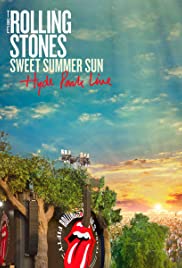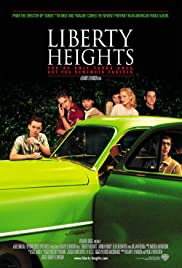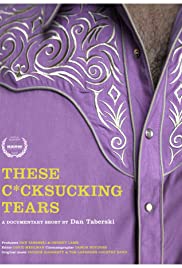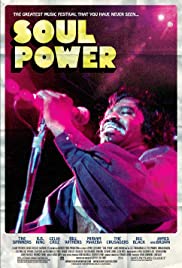
The Rolling Stones historic and triumphant return to Hyde Park was without doubt the event of the summer. Over 100,000 delirious fans of all ages packed into the park for two spectacular outdoor concerts to watch Mick Jagger, Keith Richards, Charlie Watts and Ronnie Wood do what they do best. The Stones delivered a five star performance that had both fans and critics singing their praises. The set packed in hit after hit and saw the band joined by former guitarist Mick Taylor for a special guest appearance on two songs. This stunning concert film is the perfect way to celebrate the return of The Rolling Stones back where they truly belong: live on stage in their hometown.
You May Also Like

Anti-Semitism, race relations, coming of age, and fathers and sons: in Baltimore from fall, 1954, to fall, 1955.

Patrick Haggerty, the gritty, fearless voice behind the world’s first and only gay-themed country music album, 40 years after its release.

Released to coincide with the 30th anniversary of this classic album, learn how Pink Floyd assembled “Dark Side of the Moon” with the aid of original engineer Alan Parsons. All four band members–Roger Waters, David Gilmour, Nick Mason, and Richard Wright–are interviewed at length, giving valuable insights into the recording process. The themes of the album are discussed at length, and the band take you back to the original multi track tapes to illustrate how they pieced together the songs. With individual performances of certain tracks from Roger, David, and Richard included, this is an essential purchase for any Pink Floyd fans, and a fascinating artefact for rock historians everywhere.

Soul Power is a 2008 documentary film about the Zaire 74 music festival in Kinshasa which accompanied the Rumble in the Jungle heavyweight boxing championship match between Muhammad Ali and George Foreman in October 1974. The film was made from archival footage; other footage shot at the time focusing on the fight was edited to form the film When We Were Kings.

Takes the music from the studio to the screen with gorgeous visuals and a sense of heightened reality envisioned by Musgraves and Zeinali and shot by Academy Award-nominated cinematographer Matthew Libatique.

If you thought TV shows in which audiences and juries judge musical acts were a relatively new phenomenon, you’d better think again. In the 1970s, such “festivals” were incredibly popular in Brazil. They were recorded before a live studio audience, and usually featured a number of elimination rounds. They also formed the springboard for the career of many a big-name star, such as Chico Buarque, Caetano Veloso, Roberto Carlos and Gilberto Gil. Appearing on such a program was no cakewalk, however: audiences could be as wild in their condemnation as in their appreciation of an artist. Extensive archive footage (including performances and behind-the-scenes interviews) from a turbulent final of the Festival of Brazilian Popular Music one evening in 1967 paints a fascinating picture, not only of the transformation of Brazilian music into real “festival” music, but also of a society starting to buck against the yoke of military rule.

A resident of a suburban dystopia tries to reassemble his fragmented memories of life as a teen.

Mariah Carey performs songs from her holiday album, “Merry Christmas II You.”

After she ends up in prison and loses custody of her son, a woman struggles to assimilate outside her former life and remain clean long enough to regain custody of her son.

Where are you, João Gilberto? sets out in the footsteps of German writer Marc Fischer who obsessively searched for the legendary founding father of Bossa Nova and last great musical legend of our time, Brazilian musician João Gilberto, who has not been seen in public for decades. Fischer described his journey in a book, Hobalala, but committed suicide one week before it was published. By taking up Marc Fischer’s quest, following his steps one by one, thanks to all the clues he left us, we pursue João Gilberto to understand the history, the very soul and essence of Bossa Nova. But who can tell whether we will meet him or not?